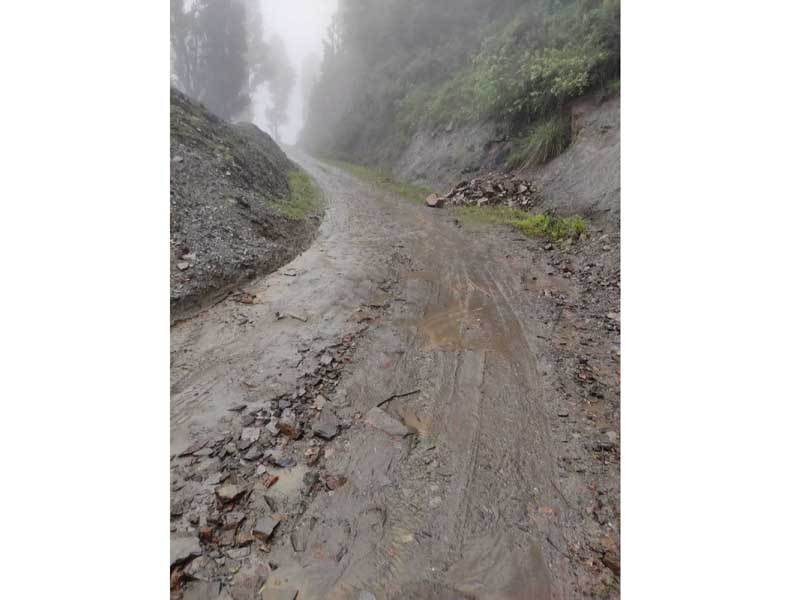Three separate road accidents occurred in the mountainous districts of Doda and Ramban, resulting in a total of eight fatalities and 16 injuries. In the first incident, a vehicle carrying five people fell into a gorge on the Bhadarwah-Pathankot road in Doda, leading to the deaths of five individuals and injuries to 12 others. In a second accident in the Bhalla area of Doda, a car carrying five individuals fell into a deep gorge, resulting in one fatality and four minor injuries. Additionally, in the Ramban district, a car carrying three people skidded off the road and landed in a gorge. Two individuals were killed in the accident and one was injured.
Despite the transfer of responsibility for the maintenance of the Batote-Doda-Kishtwar National Highway from the Border Roads Organisation (BRO) to PWD R&B in 2015 and subsequently to NHIDCL for reasons known to the Government, the condition of the highway has remained unchanged. Unfortunately, accidents continue to occur on the highway without any apparent accountability or consequences. On the High Court’s instructions, a committee, headed by the Engineer-in-Chief (Secretary Technical) of the PWD (R&B) Department, investigated the increasing road accidents on the Batote-Doda-Kishtwar National Highway and reported that reckless driving, including over-speeding, reckless overtaking, and driving under the influence of alcohol, were identified as major causes of accidents in the area. The report also highlighted the use of life-expired vehicles on the highway as a contributing factor. To prevent further loss of lives, the Committee of Experts recommended the strict enforcement of speed limits through the installation of cameras, speed trackers, and radars and the initiation of breath alcohol tests at specified locations by enforcement agencies. The committee emphasised the need for regular vehicle inspections by relevant authorities to eliminate the use of life-expired vehicles in hilly terrain. It also recommended taking strict action, including filing FIRs, against violators. But nothing concrete has been done or achieved on the ground except assurances.
Providing adequate resources and training to traffic police officers, enhancing their presence on the national highway, and implementing strict enforcement of speed limits are the need of the hour. Deploying speed cameras, surveillance systems, and other monitoring technologies to detect speeding violations and ensure compliance with speed laws are other unresolved issues. Authorities must ensure that RTO offices carry out thorough inspections and strictly enforce the requirement of speed governors in commercial vehicles. Conducting regular reviews of road infrastructure, identifying accident-prone areas, and making necessary improvements such as installing safety barriers, signage, and speed breakers should be a regular exercise now. Taking a proactive and holistic approach to address these issues and prioritising the safety of commuters in the region is the best option.
The recurring accidents in the districts of Doda and Ramban and the failure of the district administrations to strictly implement speed laws and ensure accountability are matters of grave concern. Given the seriousness of the situation, the concerned authorities need to conduct a thorough investigation into the matter. This investigation should include an examination of the reasons behind the failure to implement speed laws, the negligence or dereliction of duty by traffic cops, and the passing of commercial vehicles without speed governors and expired vehicles by RTO offices. Proper accountability needs to be established, and those responsible for any negligence should be held accountable. It is crucial for authorities to take concrete actions to address these issues rather than making promises.
Highway safety is a multi-departmental task, and unless proper coordination is there between different departments, nothing can be achieved. There has been a lack of accountability and subsequent action regarding the failure to fix responsibility and address the dereliction of duty concerning the accidents. The higher authorities must intervene to find weak links in the system and take corrective measures.
Trending Now
E-Paper


